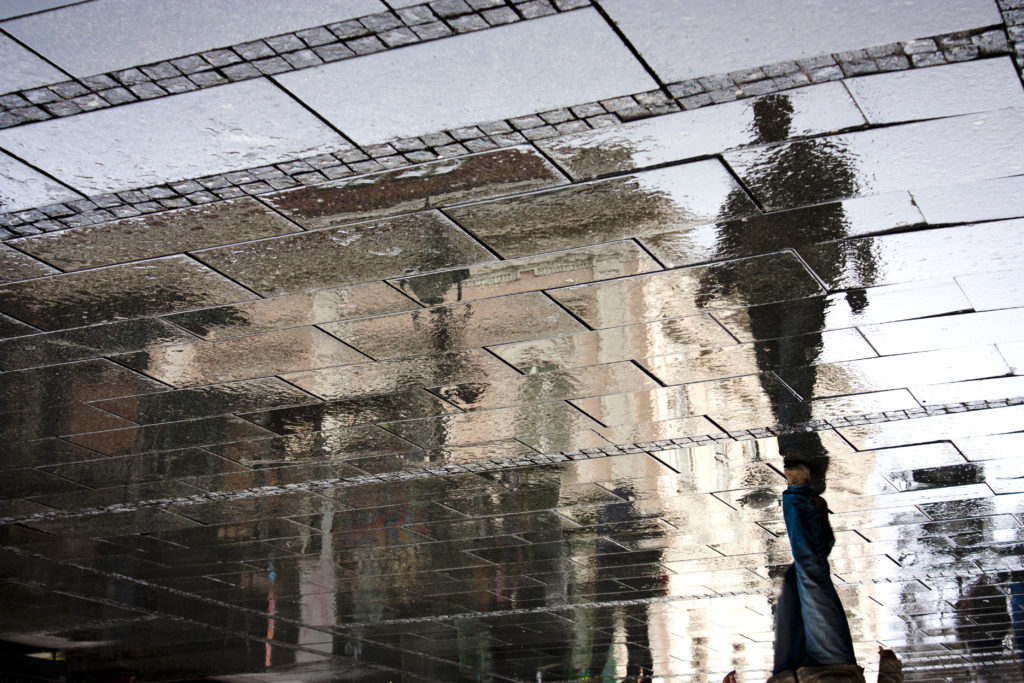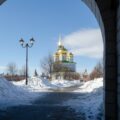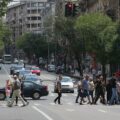How religious leaders in Russia are weaponising the coronavirus pandemic
How religious leaders in Russia are
weaponising the coronavirus pandemic
The Secretary-General of the United Nations, Antonio Guterres, recently reminded religious leaders of their responsibilities during the current coronavirus crisis. He urged them to use their authority to counter extremism and fake news, as well as to promote the values of mutual respect, social cohesion, and compassion.[1] How is this handled in Russia?
The coronavirus pandemic is bringing to light the nature of the leadership exercised by the ROC. The rhetorical strategies it uses to respond to COVID-19 can also give hints about its political, social, and moral standing in Russia.
Priests weaponise COVID-19 to promote hardline theological agendas
A senior priest in the ROC, Metropolitan Tikhon, announced that God allowed the pandemic to occur out of love for humanity. He made the statement amidst a tirade against ‘atheistic humanism’, which he believes gives a skewed view of love. God apparently intended the pandemic to teach humans how to love each other, as well as to spark repentance. Since God alone shows true love, humans cannot act in love without reference to him. Tikhon maintains the very hard line commonly taken by conservative Christians that faith is necessary for truly moral action – everything else is simply egoism.
Another priest publicly cursed all those who advocated the closure of churches because of the coronavirus crisis, or what he called a ‘pseudo-pandemic’. Father Sergey, abbot of Sredneuralsky Convent, called for people to break self-isolation restrictions put in place by the government. He also criticised the senior leadership of the ROC for capitulating to demands of politicians and scientists, portraying them as collaborating with the antichrist. While this dangerous statement appears to come from a renegade priest, it is likely that the abbot’s opinions resonate with a large proportion of Russian Christian traditionalists, who put their faith ahead of demands of leadership, politics, science, and even reason.[2]
The ROC has also been accused of hosting a ‘secret Easter service’. Roughly 60 celebrities and other important people were spotted attending a prominent Moscow church to celebrate the holiday, clearly flouting government and church warnings not to congregate.[3]
Religious moderates: a more promising alternative?
As well as such conservative voices, the Russian Orthodox Church also has a more moderate strand, which has exercised some creative theological thinking to confront the pandemic. For instance, well-known church figure Oleg Stenyaev argued that quarantine is in fact commanded by God in the Bible, referencing Leviticus 13. In a move directly opposite to Abbot Sergey, he uses the Christian faith to defend self-isolation measures implemented by the government. He went on to say that communion with God, and participation in the sacraments, is possible anywhere, not only in church.[4]
This attitude is in line with the ROC’s official stance on the coronavirus crisis. The head of the ROC, Patriarch Kyril, called for Christians to pray at home during Easter, and avoid visiting churches. Violations of self-isolation restrictions by some faithful desperate to visit churches have been fiercely condemned by other senior figures.[5] The church issued advice as to how to celebrate Easter at home, going on to compare the crisis to the closure and destruction of churches under communism.[6]
COVID-19: a point of religious division and unity
Two main camps have emerged within the Russian Orthodox Church. The conservative/traditionalist side, championed by Abbot Sergey and Metropolitan Tikhon, weaponised the pandemic to enforce their theological and ecclesiological agendas—namely, that COVID-19 was condoned by God; that Christians possess a monopoly on morality; and that churches provide the only route to communion with God. However, the moderate side generally attempts to support the advice of secular powers: scientists, politicians, officials.
The senior leadership of the ROC is clearly keen to appear to be in agreement with the government over the issue of lockdown restrictions. This approach is at least partly born of self-preservation. Patriarch Kyril recently appealed to the government to support churches and monasteries whose income has dried up because of the pandemic.[7] This agreement may prove to work to the advantage of both the church and the Kremlin, in a potential exchange of material for spiritual capital.
Interestingly, the coronavirus pandemic has provided a rare point of inter-religious unity. Mufti Kadzhimurad Gatsalov, chairman of a leading Russian Islamic association, has said that he completely agrees with Metropolitan Tikhon’s statement that God allowed the pandemic to occur out of love for humanity. Like Tikhon, he stressed the opportunity for repentance the crisis provides, adding that the current focus on death is a salutary reminder of our mortality.[8]
While the coronavirus pandemic has exposed fissures with the Christian church in Russia, it perhaps offers all religions a chance to unite around their shared values of respect, compassion, and the sanctity of life, as the UN Secretary-General suggested.
Frazer MacDiarmid
Want to know more about similar topics? Create an account on our Dashboard and receive free updates.
[1] UN chief urges faith leaders to challenge harmful messages
[2] Священник проклял тех, кто призывает к закрытию храмов из-за коронавируса
[3] В Москве прошло пасхальное богослужение для ВИП-персон
[4] Священник напомнил о карантине из Библии
[5] В РПЦ негативно высказались о посещении храмов на Пасху
[6] Представитель РПЦ рассказал, как отметить Пасху на самоизоляции
[7] Глава РПЦ попросил власти об отсрочке коммунальных платежей для храмов
[8] Муфтий Гацалов: пандемия допущена в мир, чтобы проверить нас на человечность






